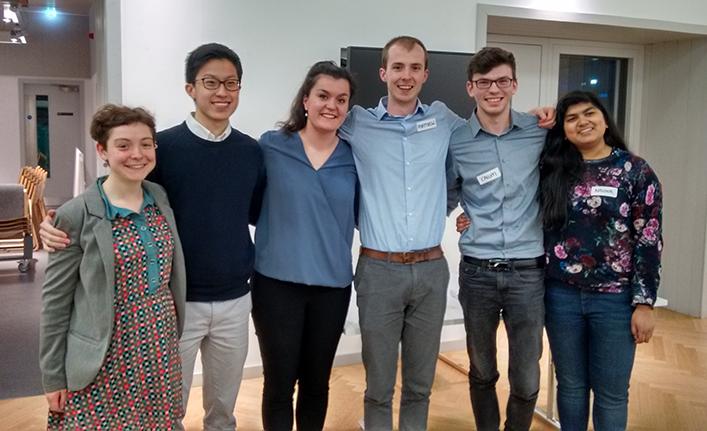
Teaching Matters has previously highlighted the issue of diversity (or lack of) in the curriculum; in February 2016 EUSA VPAA Imogen Wilson highlighted and outlined some crucial ways that diversity can be embedded in both curricula design and delivery.
This resonated with a project that we have been developing with a team of undergraduate medical students to address the lack of teaching on LGBT health within the MBChB curriculum.
Edinburgh is not unusual in this regard; there are a number of studies that show that LGBT Health is not well-covered in Medical curricula either here in the UK or in the US.
Edinburgh students themselves had queried with staff the lack of teaching on this area of health. Students recognised that knowledge of LGBT health and of the sensitivities needed to treat LGBT patients are valuable skills for qualifying doctors.
The key obstacles to changing curricula to include LGBT content are lack of time and resources, and because curricula change needs educators with the subject area expertise required to teach this complex topic.
We decided to explore an innovative approach to overcoming these three obstacles of time, resource, and expertise by looking to the open education community.
We identified a set of teaching resources on the MedEdPortal – an open resource tool for teaching and assessment resources – specifically designed to support a two hour session with medical students on this topic. The session was in three parts:
- a presentation on health disparities and inclusive terminology
- guidelines and guide questions for running a panel discussion on experiences of health care with LGBT people
- some case studies to use as a group discussion activity with students
This was an excellent starting point for us. However, we wanted to make two key changes. Firstly, the original teaching package was designed for a US audience so we updated the literature review and presentation slides to reflect a UK context.
Secondly, we wanted students to use this project as an opportunity to undertake patient interviews and record digital stories that could be used as resources for future teaching, for example when a face-to-face panel discussion might not be possible to organise.
We had six dynamic students who took on this project (see picture). They worked with the LGBT Health and Wellbeing centre in Edinburgh, University of Edinburgh student societies and a range of other networks to identify LGBT volunteers willing to share recorded experiences of healthcare. So far, the students have undertaken a number of interviews with these volunteers and digital stories have been recorded and transcribed.
In March 2016, the team organised and ran an ‘LGBT Healthcare 101’ event for nearly forty of their peers using the updated teaching resources and with a panel of LGBT individuals, community representatives and medical practitioners.
It was very well-received by the students who attended with average feedback score of 8.6 out of 10. One participant commented:
“Very impressed. Shocking that this is not covered in the curriculum”
LGBT health teaching will be a core part of the Year 1 curriculum from 2016/17 and there are also plans to re-run the student-led ‘LGBT Healthcare 101’ event in summer 2016.
The resources created as part of the project will be used to support the core teaching. We will also package up all the resources that we have created and updated as part of this project and share them with the open education community.




